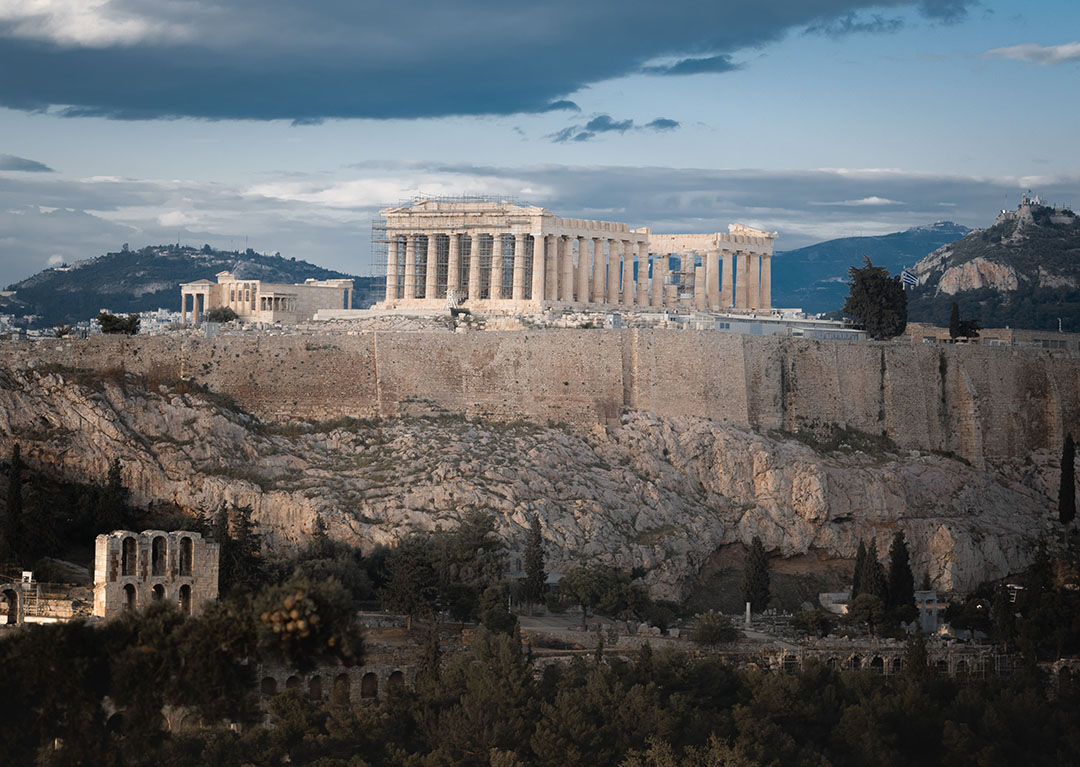Fordyce W. Mitchel Memorial Lecture Series in Ancient History
The Fordyce W. Mitchel Memorial Lecture Series, sponsored by the Department of History, provides lectures every two years from a well-known international scholar on original aspects of ancient history and society. Some lectures are also edited and published into scholarly books. The series began officially in 2000 and continues to this day. All are free and open to the public.
Fordyce Wood Mitchel (1922-1986) was a professor at the University of Missouri from 1965 until his death in 1986. He became Middlebush Chair of Mizzou in the fall of 1985, after joining the history department in 1968. Specializing in fourth-century Greek history, as well as epigraphy – the study and interpretation of ancient inscriptions -- Mitchel helped grow the ancient history program at Mizzou, as well as created extensive library resources in that field.
Mitchel was born in Shelby County Tennessee, received his BA from Yale in 1943; and an MA from Yale in 1944. He taught Classics at Vanderbilt University from 1948-1953, and in 1954 he received his PhD, also from Yale. He taught at several other universities before landing his position at the University of Missouri.
Speakers include:
2024 - (April 23-26) – Sara Forsdyke (University of Michigan), Public lecture: “Women and Slavery in Ancient Greece.” Lecture topics: “Democratic Origins: Juries and Democracy;” “Jury Size, Random Selection and Diversity;” “Democracy, Juries and the Rule of Law.”
2022 - (April 11-14) – John Lee (University of California – Santa Barbara). Public lecture:
The First Black Archaeologist and Beyond:Exploring the Life and Work of John Wesley
Gilbert (1863-1923); Seminar 1: John Wesley Gilbert, the Demes of Athens, and the Athenaiôn Politela; Seminar 2: "That First Trip in Central Greece": Missouri Professor John Pickard's Handwritten Account of Pholis, Lokris, and Boeotia in Nov. 1890; Seminar 3: John Wesley Gilbert, Ancient Eretria, and the Early History of U.S. Archaeology.
2020 – Tentatively rescheduled for 2022
2018 – Paul Christesen (Dartmouth College), Series Topic: “How Athletic Nudity Made Ancient Greece: Sports, Nudity, and Identity.” Lecture topics: “Spartans Getting Naked: Ancient Sparta and the Origins of Greek Athletic Nudity;” “How Athletic Nudity made Democracy: Sports, Nudity, and Politics;” “How Athletic Nudity made Greek Aesthetics: Sports, Nudity, and Embodiment in Ancient Greece.”
2016 – Joan Connelly (New York University), Series Topic: “Moving Pictures: Image and Imagination in Ancient Greek Art.” Lectures: “Zooming and Distancing: Through the Looking Glass of Greek Painting;” “Taking Flight: Living Sculpture and Breathing Architecture.” Plus “The Parthenon, Genealogy, and the Communication of Values.”
2014 – Michael Gagarin (University of Texas), “What is Democratic Law? The Case of Classical Athens;” “Law and Performance;” “Law, Rhetoric, Justice;” “The Rule of Law.”
2012 – Andrew Erskine (University of Edinburgh), “Alexander the Great and the Hellenistic World;” “Clouds from the West: The Greek Response to Rome.”
2010 – Joseph Roisman (Colby College), Series Topic: “Alexander the Great’s Veterans.” Lectures: “Craterus and the Macedonian Veterans After Alexander’s Death;” “Perdiccas’ Invasion of Egypt;” “The Silver Shields and Their Historian, Hieronymus of Cardia.”
2008 – Christopher Pelling, (Christ Church, Oxford). “How Greek Historians Explained History.”
2006 – Stephen Hodkinson (Nottingham), “The Modern Mirage of Spartan Militarism;” “Spartan Militarism in Classical Comparative Thought;” “Spartan Militarism in Comparative Perspective (Ancient and Modern);” “War in Spartan Society: A Comparative Perspective.”
2004 – Mogens Hansen (University of Copenhagen), “The Shotgun Method Used to Establish the Total Number of Inhabitants of the Ancient Greek Poleis;” “The Population of the Walled Poleis;” “The Proportion of the Population Settled in the Hinterland of a Polis and the Carrying Capacity of the Various Regions;” “Was Athens a Democracy: A Comparison Between Ancient Athenian and Modern Liberal Democracy.”
2002 – Carol Thomas (University of Washington)
2000 – Mark Golden (University of Winnipeg)
1986 – Christian Habicht (Institute for Advanced Study), “The Delphic Amphictyony From the Sixth to the Second Century, B.C. II.”
